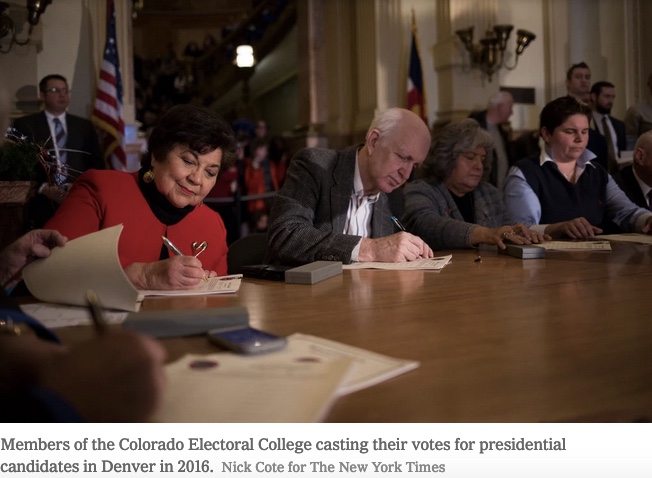WASHINGTON — States can require members of the Electoral College to cast their votes for the presidential candidates they had pledged to support, the Supreme Court unanimously ruled on Monday, curbing the independence of electors and limiting one potential source of uncertainty in the 2020 presidential election.
Thirty-two states and the District of Columbia have laws requiring electors to vote as they had promised, but recent court decisions had come to opposite conclusions about whether electors may disregard their pledges.
The Supreme Court resolved the dispute on Monday in a pair of cases concerning electors in Washington State and Colorado, by saying that states are entitled to remove or punish electors who changed their votes. In states without such penalties, electors remain free to change their votes.
“The Constitution’s text and the nation’s history both support allowing a state to enforce an elector’s pledge to support his party’s nominee — and the state voters’ choice — for president,” Justice Elena Kagan wrote for seven members of the court.
The parties had asked the court to put the cases on a fast track to ensure that they were decided “outside of the white-hot scrutiny of a contested presidential election,” as the petition in the Washington case said.




